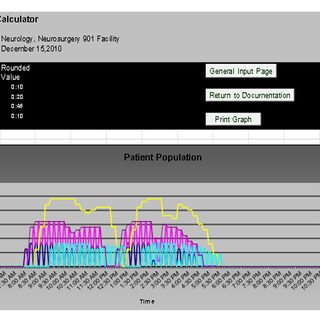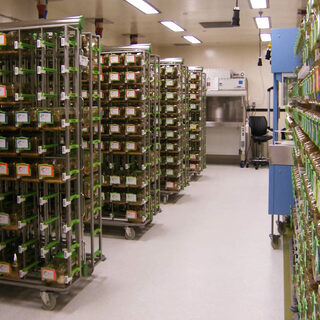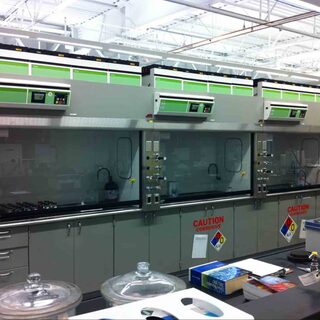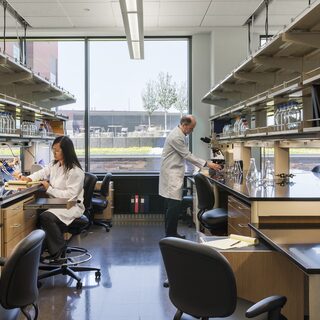Tradeline's industry reports are a must-read resource for those involved in facilities planning and management. Reports include management case studies, current and in-depth project profiles, and editorials on the latest facilities management issues.
Latest Reports
Facility Space Planning with the Help of Big Data
With an overwhelming amount of space data—collected from and managed by RFID chips, space utilization models, visual schedule maps, BIM—the best outcomes increasingly rely on the ability to analyze, distill, and communicate that information, according to Jeff Funovits and Alex Wing, principals with Stantec. This is particularly true when it comes to the design and planning of medical, research, and educational environments, where efficiency and meaningful learning or clinical outcomes are the measures of success.
Advanced Colony Data Management System Dramatically Improves Vivarium Efficiency
Genentech’s custom-built colony management system (CMS) is allowing the organization to dramatically improve efficiency and reduce waste at its massive 150,000-sf vivarium facility east of San Francisco. In its first year of implementation, the system reduced operational inefficiencies by more than 150 percent and saved the organization more than $2 million, while also improving living conditions for mice and empowering husbandry and colony management staff.
Steady Construction and Labor Demand Drive New Project Costs Above Trend Line
Sustained growth over the past 18 months has pushed new construction prices above the long-term trend line for the first time since 2009, according to third-quarter economic data. Capital construction prices are now trending at an annual escalation rate of 4 to 8 percent, depending on region, with northeastern and southern states showing the greatest increase. Regional labor demand is also driving up project bids in midwestern states.
Filtered Fume Hoods May Dramatically Reduce Financial and Environmental Impacts
When compared to constant volume hoods (CV), variable air volume (VAV) hoods, and high-performance VAV (“low-flow”) hoods—based on a hypothetical 30-hood, 100,000-sf building—filtered hoods generate significant initial, operational, and environmental savings. This matters because chemical fume hoods used in commercial, research, and instructional laboratories are among the country’s biggest energy hogs.
Cancer and Cardiovascular Research Building
The new four-story Cancer and Cardiovascular Research Building at the University of Minnesota consists of the 158,000-sf Cancer Research Building, a 96,000-sf addition to the Lillehei Heart Research Building, and a 34,000-sf vivarium used by the entire Biomedical Discovery District. The facility houses the University’s Department of Integrative Biology and Physiology, as well as two groups of investigators from Masonic Cancer Center: chemical biologists focusing on studying chemical carcinogens as a cause of cancer, and faculty focusing on novel therapeutic strategies to fight cancer.




